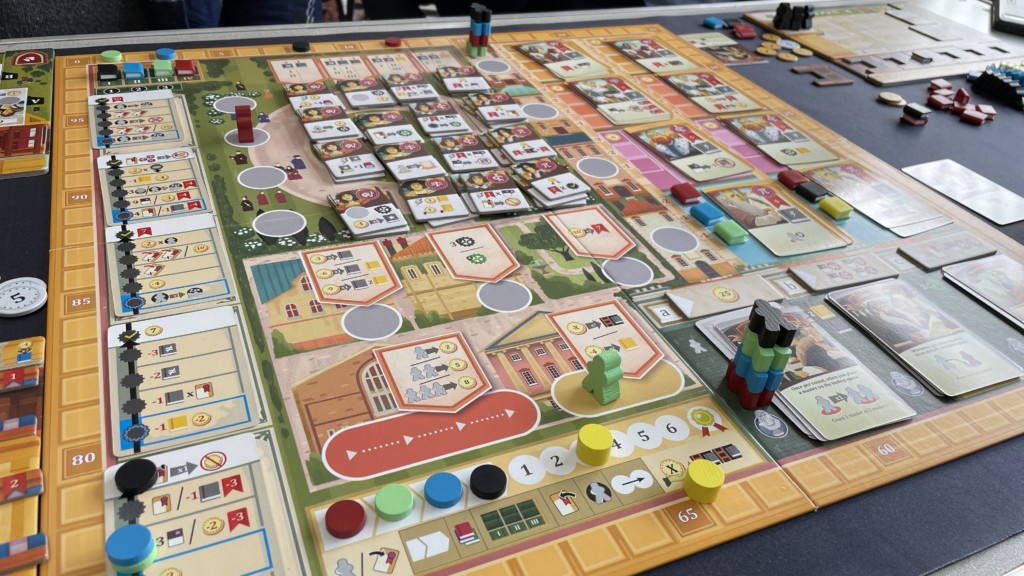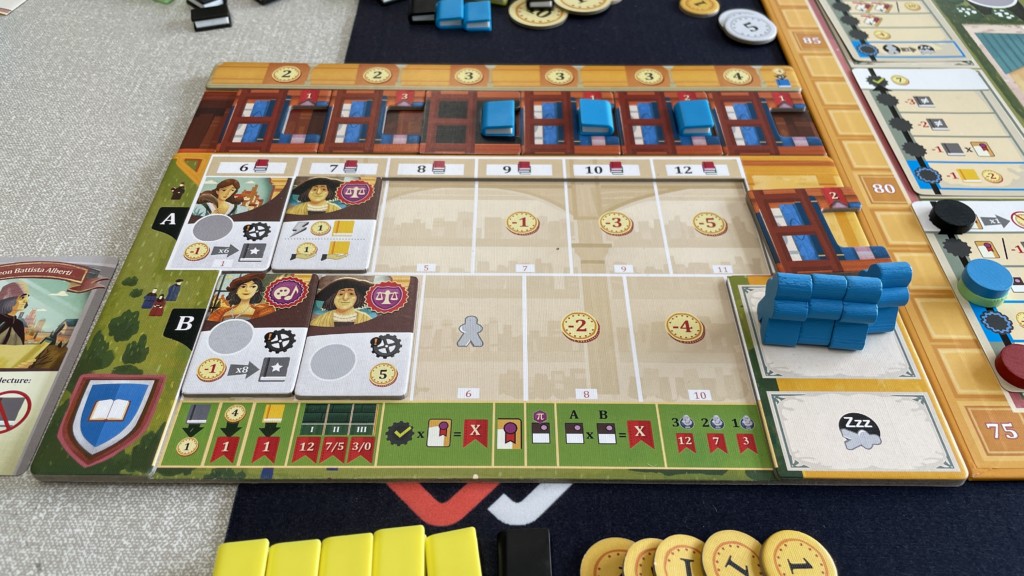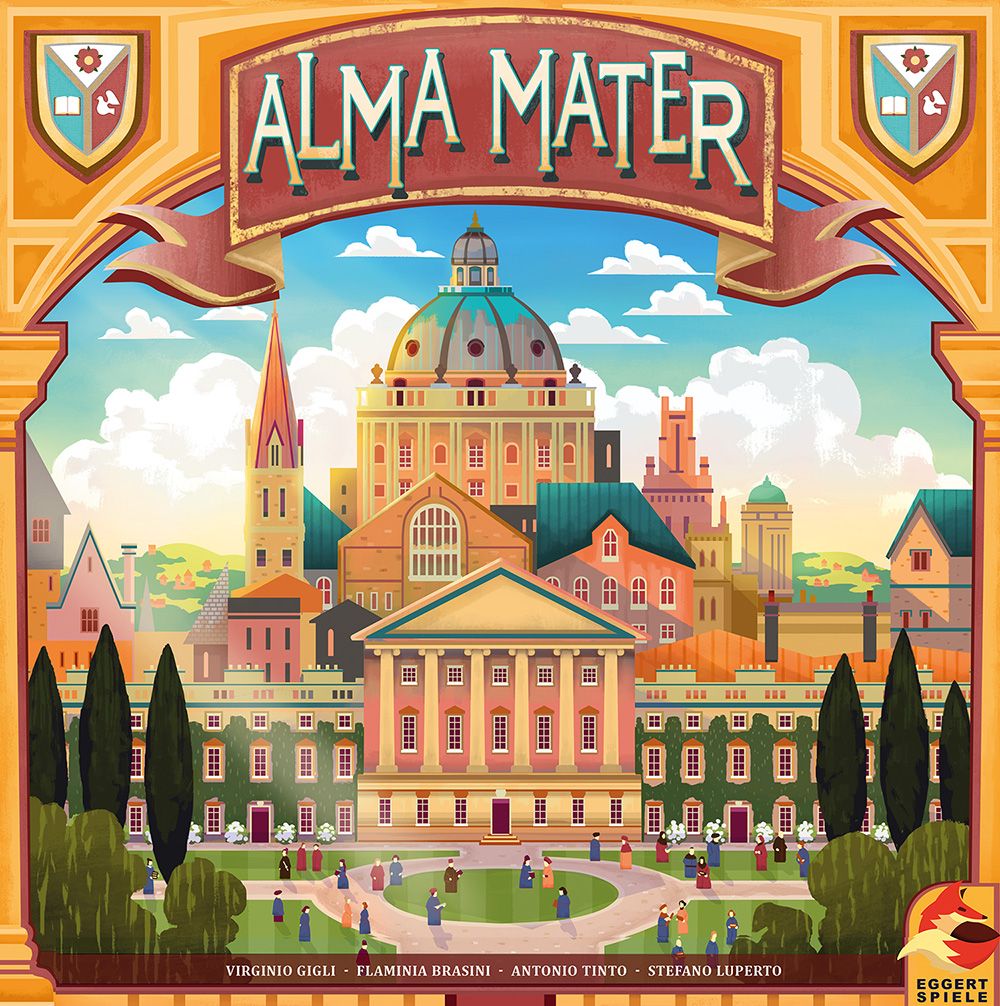Alma Mater has players trying to create the most prestigious University.
Can you attract the best staff and students?
Players serve as headmasters of one of the independent universities in the 15th century. Players seek to strengthen their school’s reputation and standing. To achieve these goals, players need to recruit the best staff and students, exchange knowledge with other schools, and become experts in the school’s four disciplines!
Alma Mater Game Overview
Quick Rules Summary
While this game isn’t overly heavy, there is a lot going on so this will be a very brief, top-level summary. Important details will be covered in the positives & negatives section below.
Players will place workers in various spaces around campus to gain money and books, the two main ‘currencies’ of the game. They can also move up on a research track.
These are then used to recruit students and professors, both of which provide bonuses and abilities.
How do you win?
At the end of the game, there are lots of little scoring bits to do…
Players get prestige for leftover money and books. They also score for the value of their own colour book which has been moving up and down on a track throughout the game.
Prestige for how many milestones they passed on the research track times by the number of professors they have. Professors also provide prestige themselves.
Students score by multiplying the number in the first row by the number in the second row. Maths students also score points themselves.
Finally, there are 3 busts that can be gained by hitting milestones and players get prestige for getting these too.
Most prestige wins.

Main Mechanisms
Worker placement is the obvious one. There are minor bits such as set collection, resource management and a pretty cool closed economy.
USP
Nothing at all.
Theme
Running a University is a pretty cool theme for a Euro and it’s done in a fun way here.
Setup
The setup looked involved and as I’ve mentioned a few times on this blog, I played this on the particular game day when really nice homemade cakes are for sale… I was, distracted during the setup process but I did my part!
Components & Artwork
The components are pretty standard to a point. the book tokens were really nice and were the one thing that everyone passing the table was impressed by.
I’m not a fan of this style of art.

Ease of Teaching
The game itself has a lot going on. But, if you’re clear on the overview of how the game plays and you understand the iconography you’ll be OK.
Similar Games
The game looks like Coimbra, released by the same publisher two years earlier.
For a worker placement game set in an academic situation, I would go for the (admittedly a bit clunky and table-hogging) Argent: the Consortium. It’s just as good with a much more fun theme.
Alma Mater Review
Positives
It has a nice table presence with the book tokens a particular highlight.
Players determine the value of books which means their value changes from round to round. As you buy the different colours of books from the players directly, this value is an important way of earning money by making your books desirable.
A part of that is the closed economy with very little money coming in from outside the game.
The ‘do this to get that to trade for these’ gameplay works well…
Negatives
…but there are so many games that do this in a more fun way, for example, Marvel: Age of Heroes.
You gain extra workers by doing well which seems to help runaway leaders.
Summary
A decent game that is available in countless much better forms.
Jesta ThaRogue



Leave a Reply